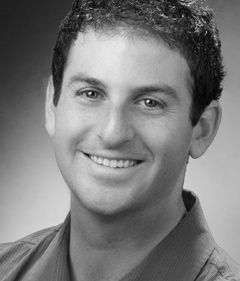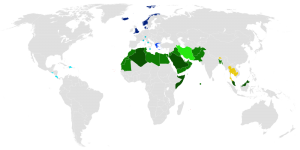WHS Students Attend GDWC/CDGE Lecture by Robin Wright
Robin Wright and Azar Nafisi Discuss Iranian, Oscar Nominated, Film in The Atlantic
Tomorrow evening (2/26/2012), the makers of the Iranian film, A Separation, will find out if it is an Oscar winner in either of the two categories for which it is nominated (Best Foreign Language Film, Best Original Screenplay). Last week, The Atlantic magazine featured, on its website, a conversation between Robin Wright and Azar Nafisi (author of Reading Lolita in Tehran and Things I’ve Been Silent About). Nafisi’s Reading Lolita in Tehran was the summer reading assigned to The College of Wooster’s incoming first year students during the summer of 2006. She was a speaker as a part of the Wooster Forum that fall.
I highly recommend checking out this conversation in The Atlantic!
UPDATE: A Separation won the Oscar for Best Foreign Language Film.
Latest Post from C.O.W. ’11 Grad Adel El Adawy on his Excellent Blog
Adel El Adawy, who graduated from The College of Wooster (German and Communication Studies) in 2011 Started a blog this past year. I highly recommend that you bookmark it and check back to read the frequent updates, including the most recent. About this internet venture, Adel writes:
Welcome to Egyptian Student Abroad,
This website brings the voices of young Egyptians together. Egypt has witnessed dramatic events in the past few months, that have impacted the political landscape. We see political parties being formed, more political awareness, and foremost greater political participation. At this pivotal moment in our nations history, we need to remember that there will be many more obstacles ahead of us.
Nelson Mandela once said: “After climbing a great hill, one only finds that there are many more hills to climb.” The uprising of January 25 is just the start of the ongoing revolution in Egypt. What we do now, is what will change Egypt and transform it into a liberal democracy.
There are many issues, debates, and events unfolding while we speak. This website seeks to provide a fresh perspective from young Egyptian students studying around the world. Young Egyptians are the hope of the future. Again, as Nelson Mandela once said: “Sometimes it falls upon a generation to be great. You can be that great generation.” What the youth of Egypt are doing is remarkable, but trust me the road is still long.
Jared Cohen’s GDWC 2012 Lecture: “Digital Diplomacy and 21st Century Statecraft”
Will an elected Muslim Brotherhood Party Result in a Fundamentalist Islamic State?
Many people fret about what would happen in Egypt if the Muslim Brotherhood grew in its power. According to the Chicago Tribune “with more than 43 percent of the seats in parliament, the Brotherhood is the biggest of the parties that emerged from Egypt’s most democratic elections in six decades.. Local media reports have named Khairat Shater, the deputy head of the Brotherhood, as a possible candidate for prime minister.”
As one of the founding civil society organizations responsible for a “fundamentalist Islam”, we have become used to reading about their complex history that suggests that they would institute an Islamic state. What are the images that come to mind when one thinks of an Islamic state? I would submit, that in the West, when we think of an Islamic state, we imagine an Iran-like-Theocracy or the Taliban in Afghanistan. In reality, the situation is a bit more complex and according to Tariq Ramadan it is changing.
First, there are many examples of Islamic states (see below) that are not theocracies and do a decent job at democracy and maintaining the rule of law. Furthermore, Grand Mufti Gomaa of Egypt has suggested that “a civil state means a modern nationalist state that is compatible with Islamic provisions.”
According to Gomma quoted in Egypt Independent “Egypt’s religious traditions are historically linked to Islamic concepts that are based on tolerance and respect for religious differences. Egypt’s Islamic identity does not clash with its civil system, which defends citizens’ rights regardless of their faith. The mufti said the rights of Egypt’s Coptic Christians will be protected and that religious diversity should be respected.”
Second, many members of the Muslim Brotherhood and people that belong to Islamist parties in other countries are changing their rhetoric from “Islamist” to “civil”. For a neat discussion of this trend see Tariq Ramadan’s oped.
Finally, its important to remember as Dr Ramadan has pointed out that the notion of an Islamist state, as espoused by the Brotherhood was in part a response to western domination. “The state, defined as ‘Islamic’ was..the only structure that could ensure the political independence, religious identity (as opposed to secularisation, implicitly directed against Islam) and cultural specificity of the emerging Arab state entities. It was an ideological response which must be assessed in the light of the prevailing issues of the day.”
What intrigues me is how the language and rhetoric of the former Islamists is changing to be inclusive but at the same time attempts to maintain its identity separate from the west. This is as it should be.
Blogging Heads Conversation on China and Syria
In another timely BloggingHeads installment between Robert Wright (author of The Evolution of God) and Lora Saalman (an analyst based in China) Saalman links China’s veto of the anti-Assad UN resolution to the Libyan intervention and China’s own disputed territories.
Blogging Heads TV
Recently Blogging Heads TV featured a discussion between Shadi Hamid and Gregory Gause on whether the Arab Spring has been good for America and how Syria differs from Iraq.


